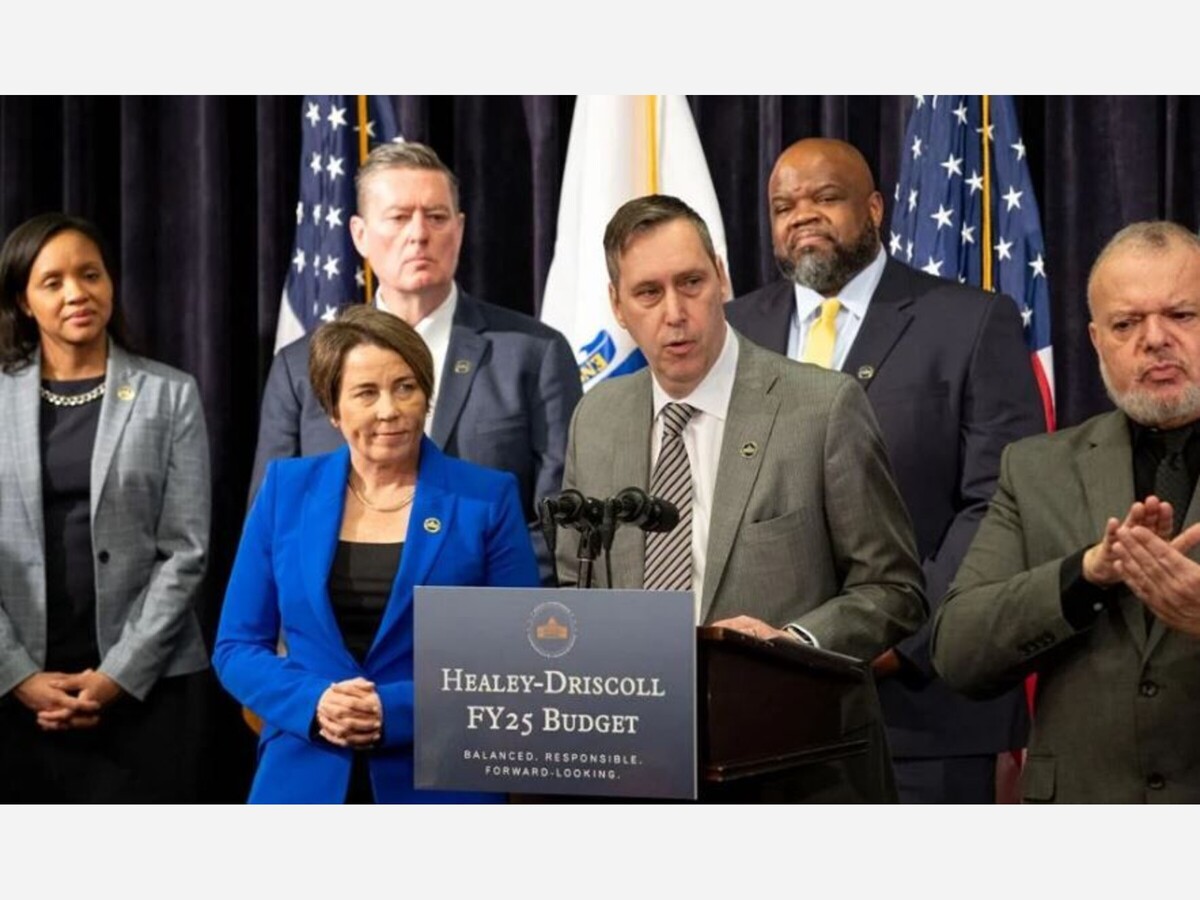Image

The Healey administration's budget chief is "cautiously optimistic" about the economic outlook for the year ahead, even though he expects lackluster tax collections to continue and sees "unavoidable deficiencies" on the horizon.
Administration and Finance Secretary Matthew Gorzkowicz told business leaders Thursday that his team thinks the tax trends from fiscal year 2024 -- when non-surtax revenues lagged hundreds of millions of dollars behind projections -- will continue in fiscal 2025.
Gorzkowicz said the current fiscal year, which started July 1 and will stretch through June 30, 2025, will likely also feature "some unavoidable deficiencies we know we will need to address later in the year," according to a written copy of remarks he planned to deliver at an Associated Industries of Massachusetts event.
"While we know we need to be prepared for another year of slow revenue growth -- and we will be -- we also have reasons across the financial landscape to be cautiously optimistic about where we are going," Gorzkowicz's prepared remarks said.
The state collected about $967 million more than expected in fiscal 2024, but all of the overage and then some came from the surtax on high earners. Setting aside that money, which has a limited set of available uses, Massachusetts ended the last cycle with a budget shortfall of $233 million.
Gorzkowicz told attendees Thursday that some of the underperformance occurred in sales tax collections, which landed $118 million below yearly benchmarks. More than half of that year-over-year drop was in "housing-related categories" like building supplies and home goods, he said.
He touted the administration's "active management" of financial pressure points, including $317 million Gov. Maura Healey vetoed from the nearly $58 billion fiscal 2025 budget and the extension of "hiring controls" through October.
Preliminary forecasts of the voter-approved surtax suggested it could generate around $2 billion in revenue, but lawmakers and the Healey administration opted to plan on a more conservative $1 billion haul in their budget for fiscal 2024.
The state actually collected about $2.2 billion, all of which must constitutionally be dedicated to education and transportation initiatives.
Healey wants to use some of that money to help plug last year's shortfall. In her closeout budget bill filed earlier this month, she proposed "strategically" spending $225 million in excess surtax revenue on education and transportation programs like early education grants. Money originally allocated for those programs from other sources could then be redirected to addressing the shortfall.
Gorzkowicz said Thursday he expects the state to have "nearly $800 million" in excess surtax money remaining, and suggested lawmakers and the administration could begin discussions next year about how to allot the money.
The administration is also pushing to revive another state savings account commonly referred to as the Transitional Escrow Fund.
Lawmakers and former Gov. Charlie Baker put about $1.5 billion in surplus dollars into that account in 2021, and it's now poised to run out as the state uses the money to cover unexpected expenses, especially a massive spike in spending on the emergency shelter system.
Healey's closeout budget would redirect $265 million in capital gains tax revenues to "rebuild" the Transitional Escrow Fund, instead of allowing that money to be deposited in the much larger "rainy day" Stabilization Fund or elsewhere. She has also said she hopes to use about $600 million in money from a tobacco settlement to further boost the fund.
In his prepared remarks, Gorzkowicz said the Transitional Escrow Fund "has proven critical this past year to helping us manage through the surge in demand for shelter and will be needed again in FY25 and beyond."
Beacon Hill in recent years has hesitated to dip into the rainy day fund, whose balance could hit about $8.8 billion under Healey's closeout plan. Some lawmakers and officials believe rating agencies frown upon states dipping into their stabilization funds, and failure to steadily rebuild the account was a cited factor the last time the state's bond rating was downgraded.
Gorzkowicz suggested the administration is thinking about building upon another borrowing maneuver. The fiscal 2025 budget allowed the state to leverage $250 million in surtax revenue to boost the borrowing capacity of the Commonwealth Transportation Fund, and Gorzkowicz said his office convened a "working group" to examine doing something similar for higher education.
He praised the Federal Reserve's decision last week to cut interest rates, suggesting it might push more people to participate in the housing market.
One of the administration's top business-related priorities has been a wide-ranging economic development bond bill designed to spur new job growth and renew state support for several industries, especially the life sciences sector and the nascent climate technology field.
But House and Senate Democrats for months have been unable to agree on a single path forward, leaving the multibillion-dollar borrowing bill in limbo.
Gorzkowicz said Thursday he is "confident that it will get done soon," according to his prepared remarks.